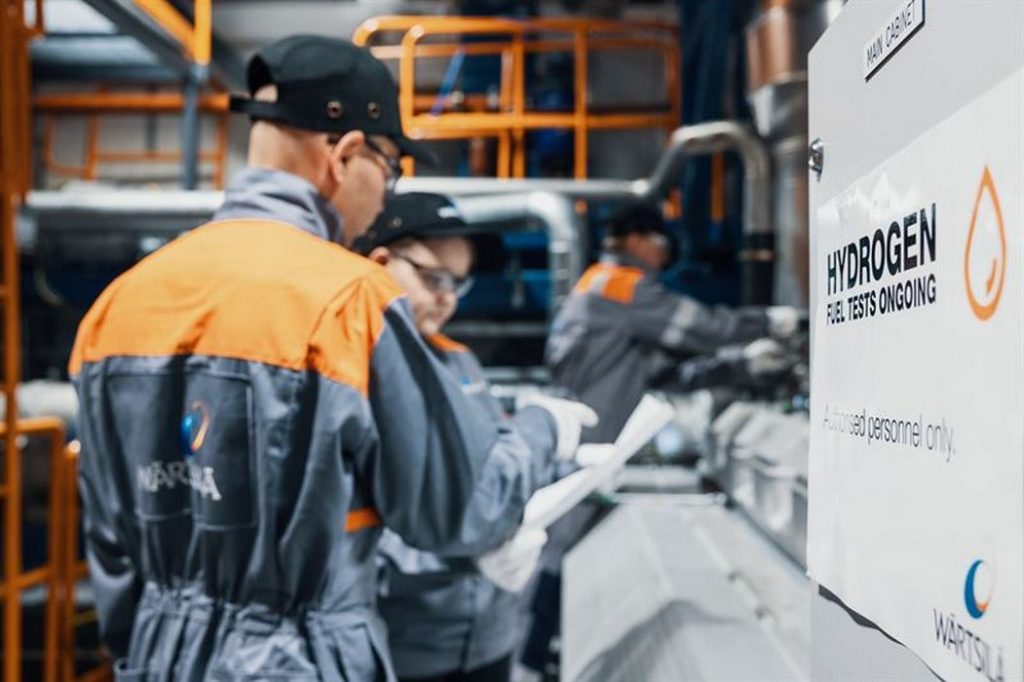The technology group Wärtsilä has published an important paper on the role of sustainable fuels in the energy sector’s transition towards decarbonised power generation. Future carbon-neutral fuels and the use of flexible engine power plants capable of utilising such fuels, will be central to this transition.
Along with the growing need to decarbonise engine power plants, Wärtsilä has invested heavily in the study of alternative future fuels at its dedicated fuel laboratory where a broad range of fuels have been tested. As part of the company’s new world-class Smart Technology Hub, fuel testing and the assessment of engine compatibility will uniquely be able to be carried out under one roof.
“Wärtsilä has taken a leading position in the study of carbon-neutral fuels, made possible by our outstanding facilities, testing capabilities and expertise. This paper explains in great detail the options and likely future fuel-choice scenarios that will transform the way that energy is produced with assets such as grid balancing engines,” explains Jukka Lehtonen, Vice President, Technology & Product Management, Wärtsilä Energy.
The fuel options are broken down into three categories, namely Power-to-X (P2X), Bio-to-X (B2X) and Waste-to-X (W2X). P2X fuels are produced through the electrolysis of water into hydrogen and its various derivatives. They can be considered ‘green’ only if the power used for the process is from renewable energy sources. B2X includes biofuels and biogas which, particularly as blends, will likely be used in certain areas of the world as a locally suitable solution. W2X fuels include plastic or tyre pyrolysis oils or gasified municipal waste. Since they support a circular economy, they have value for sustainability and decarbonisation.
Reetta Kaila, Director, Sustainable Fuels and Environment, Wärtsilä Energy, says: “The key outcome of our studies is that different fuels will be adopted depending upon location and availability. We feel that we must look beyond the concept of one or two fuels, be it hydrogen, ammonia or methanol, being the universal choice. We believe that multiple fuel options will be available, many of them very localised serving power plants within fairly short distances of the fuel production.”
Source: Wartsila
Tags: Decarbonisation, Fuel Laboratory, Sustainable Fuel, Wartsila



Recent Posts
New Report Highlights Potential of Voluntary Insetting to Support Maritime Decarbonisation, Calls for Robust Safeguards
Smart Ship Hub achieves industry first with ABS emission reporting
Henkel Rolls Out India’s First Mid-Haul Re-Powered Electric Trucks for Commercial Logistics
Sustainability in Focus at 11th SIAM Automotive Logistics Conclave in New Delhi
L&T Energy GreenTech to Establish India’s Largest Green Hydrogen Plant
JK Srivastava Group and Hynfra Announce $4 Billion Green Ammonia Project in Andhra Pradesh
Andhra Pradesh Unveils Ambitious Green Hydrogen Valley Plan to Lead India’s Energy Transition
South Africa advances plans to decarbonize shipping sector